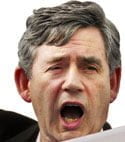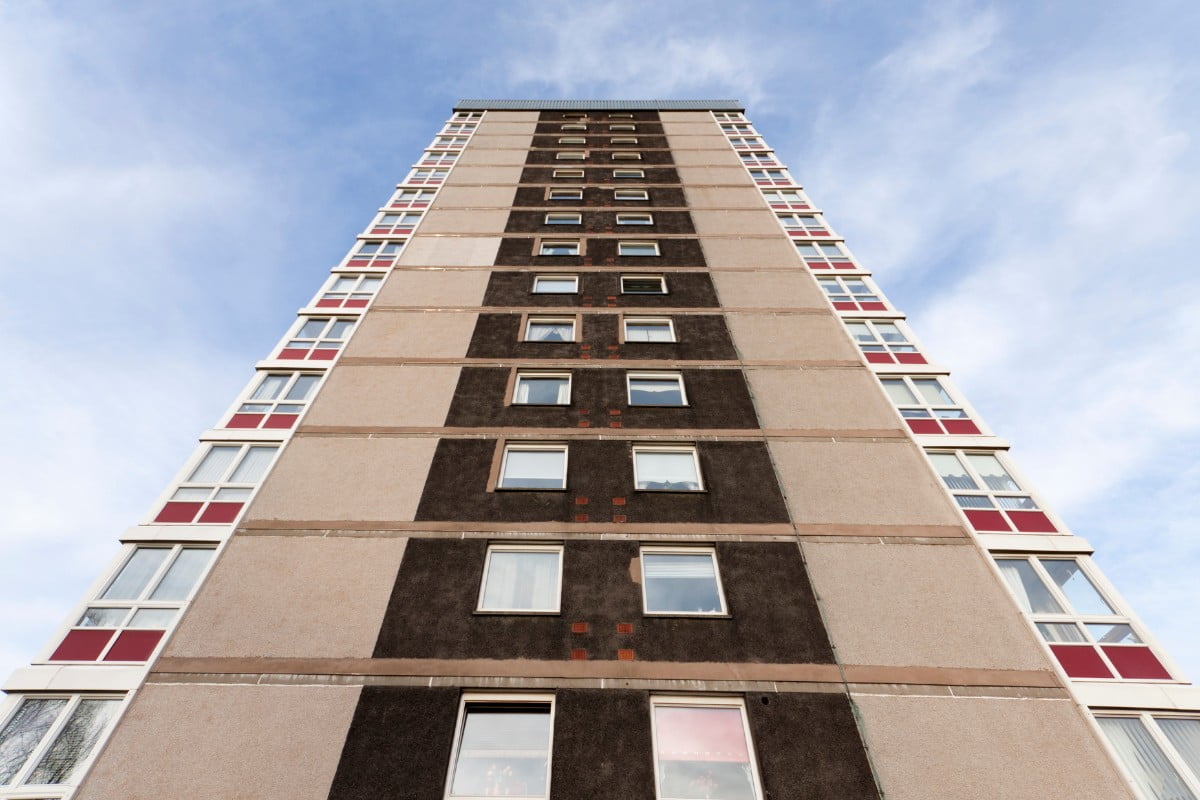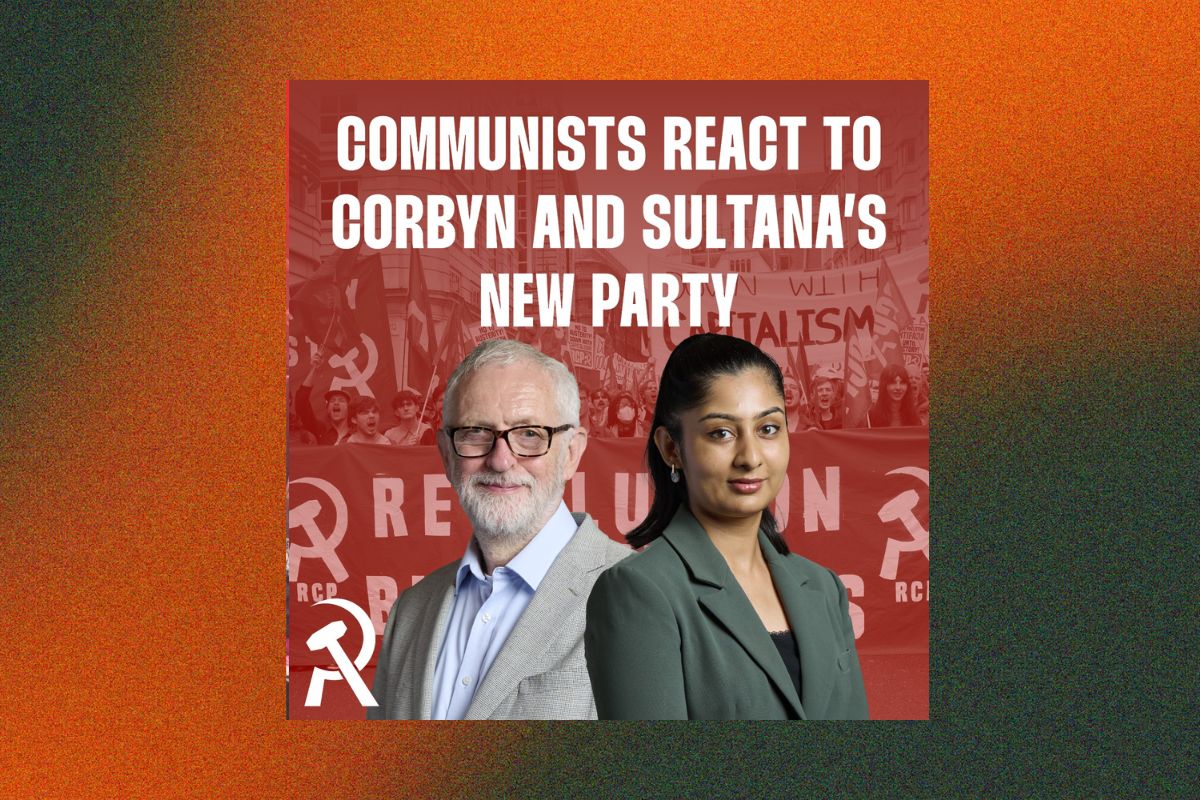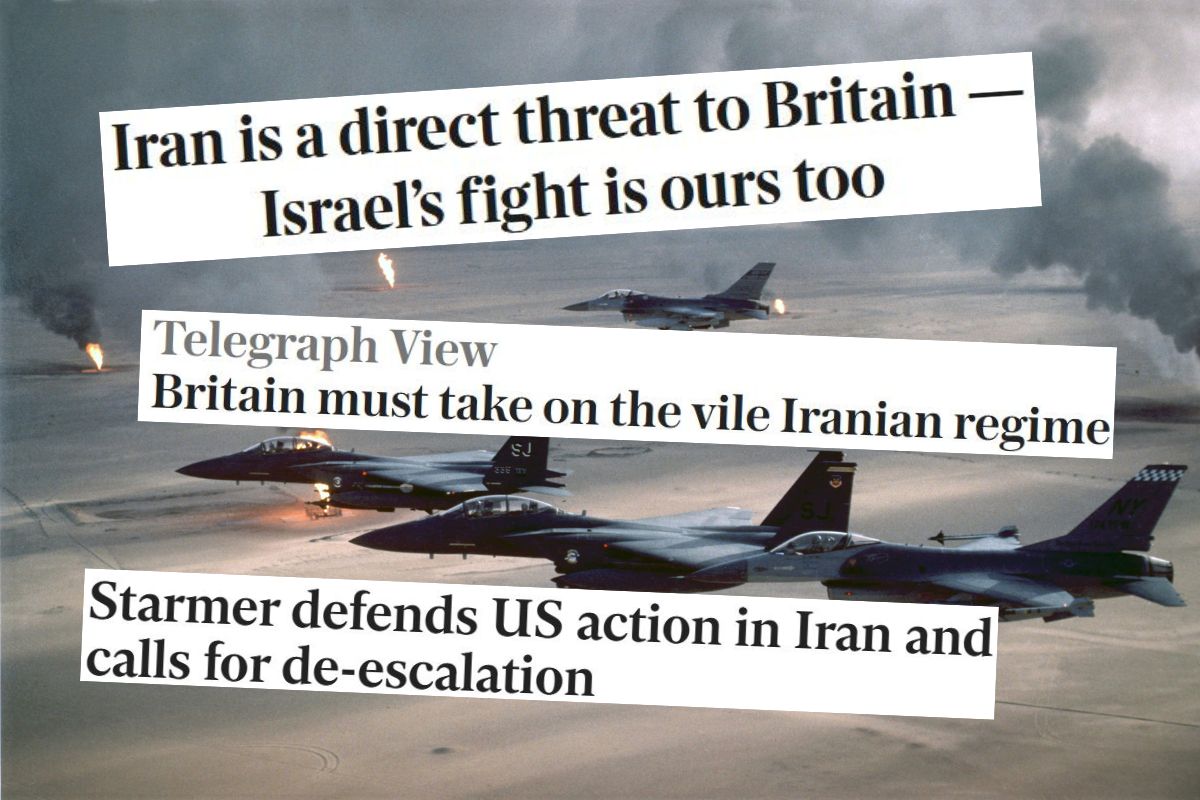Speculation has reached fever pitch in the press over whether or not Brown will call a snap General Election after only three months as prime minister. With the Tories languishing in the polls, one giving Labour an eleven percentage lead, and the government surviving the different crises of foot and mouth, floods and the run on Northern Rock, the young Turks of New Labour’s front bench are keen to launch an election.
 But Brown has generated little enthusiasm amongst traditional Labour supporters, desperately hoping for a break with a decade of Blair. But Brown is simply continuing where Blair left off: more "reform", which is double-speak for counter-reforms. It is no accident that Brown invited, as did Blair before him, Margaret Thatcher to Downing Street. It is someone Prime Minister Brown very much admires (a "conviction politician"). True, she had plenty of "conviction" during her period in office – in attacking the old, the sick and the infirm and destroying the lives of millions of ordinary working class people. For them, she is a hated figure who ruthlessly butchered working class communities. She represented capitalism "in the raw". So it is fitting that Gordon, who worships at the altar of the market economy, also bends the knee to its arch political representative, Baroness Thatcher. For loyal ordinary Labour voters the scene outside Number Ten was enough to make them ill.
But Brown has generated little enthusiasm amongst traditional Labour supporters, desperately hoping for a break with a decade of Blair. But Brown is simply continuing where Blair left off: more "reform", which is double-speak for counter-reforms. It is no accident that Brown invited, as did Blair before him, Margaret Thatcher to Downing Street. It is someone Prime Minister Brown very much admires (a "conviction politician"). True, she had plenty of "conviction" during her period in office – in attacking the old, the sick and the infirm and destroying the lives of millions of ordinary working class people. For them, she is a hated figure who ruthlessly butchered working class communities. She represented capitalism "in the raw". So it is fitting that Gordon, who worships at the altar of the market economy, also bends the knee to its arch political representative, Baroness Thatcher. For loyal ordinary Labour voters the scene outside Number Ten was enough to make them ill.
Brown’s speech at this year’s Labour Party conference could have been made by a centre-left Conservative. There was no mention of the chasm between rich and poor. No mention of the City tycoons and their millionaire bonuses. No mention of the millions in debt. And, of course, there was not a single word about socialism. This is because the speech is aimed not at Labour voters but at the most rich and powerful in the land, whose trust he craves. He is keen, as over the last ten years, to do their bidding.
 Brown sees himself as standing above "narrow" class interest, although he sides with Big Business, and brings together his so-called "government of all the talents", the nearest thing to a National Government. The ex-director general of the CBI, Lord Digby Jones, is brought in as a minister and given a life peerage. In reality, a veritable rouges gallery: Tories, Liberals, ex-Labour renegades, Lords and Ladies, and millionaire Tory tycoons are all included; much easier to bury the ideas of socialism, as Ramsay MacDonald attempted to do in 1931.
Brown sees himself as standing above "narrow" class interest, although he sides with Big Business, and brings together his so-called "government of all the talents", the nearest thing to a National Government. The ex-director general of the CBI, Lord Digby Jones, is brought in as a minister and given a life peerage. In reality, a veritable rouges gallery: Tories, Liberals, ex-Labour renegades, Lords and Ladies, and millionaire Tory tycoons are all included; much easier to bury the ideas of socialism, as Ramsay MacDonald attempted to do in 1931.
The ruling class are hoping that Brown can hold the line as Blair did. The Tories are still too tarnished. They have the mark of Cain on them. Cameron’s attempt to portray himself as another Blair has no appeal. Only when Brown cannot hold the unions in check will they turn to the Tories, their traditional political representatives. For the time being, Brown can do their dirty work. After all, for Big Business, is this not the role of Labour Governments?
When the discontent of the working class breaks through – and that doesn’t appear too far off given the industrial climate – the ruling class and their kept press will turn on Brown with a vengeance. When the time is ripe they will throw aside the New Labour government like some used rag. For now, a Brown government has its purposes. In regard to policies, there is little difference in essence between New Labour and the Tories, both of which bow down before Big Business.
At the moment the Brown entourage are all smiles. They have weathered the storms. Or so they think. Like a blind man, they stumble from day to day. Not long ago, didn’t they praise Northern Rock as Britain’s fastest-growing mortgage lender? The storm clouds are now gathering. There is deep hostility to Brown’s wage restraint throughout the public sector. This winter will certainly be a winter of Discontent for many, and this discontent could take the form of widespread strikes.
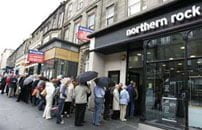 The economic climate is extremely volatile. Northern Rock will not be the last banking collapse. "How, if everything else was fine, could a bank like Northern Rock be brought to its knees by some careless lending 3,000 miles away on the other side of the Atlantic?" asks the Financial Times. Globalisation, as this shock has proved, also means global crisis. The lines of desperate people queuing outside Northern Rock – the first British bank crash in 144 years – are a harbinger of what is to come.
The economic climate is extremely volatile. Northern Rock will not be the last banking collapse. "How, if everything else was fine, could a bank like Northern Rock be brought to its knees by some careless lending 3,000 miles away on the other side of the Atlantic?" asks the Financial Times. Globalisation, as this shock has proved, also means global crisis. The lines of desperate people queuing outside Northern Rock – the first British bank crash in 144 years – are a harbinger of what is to come.
The booming housing market is about to collapse. There was a 2.6% drop in house prices in September. Even Alan Greenspan, the former chairman of the Federal Reserve, stated that Britain faces the prospect of falling house prices and rising inflation within a few years. He added that the UK market is more susceptible to the credit crunch than America, because variable-rate mortgages are more popular here. With a mountain of personal debt, some £1.4 trillion, such a "credit crunch" would have an enormous impact on the real economy.
Whether the election is called or not, there can be no solution to the fundamental problems of the working class on the basis of capitalism. It is the market economy which is the root cause of these problems. While the economy trundles forward Brown my hold the line, but as the capitalist crisis deepens, at a certain point, the whole New Labour edifice will come crashing down. Only on the basis of socialist policies, which means taking over the commanding heights of the economy, can society be rationally planned in the interests of the majority. Only then can the problems of working people be eradicated once and for all.

